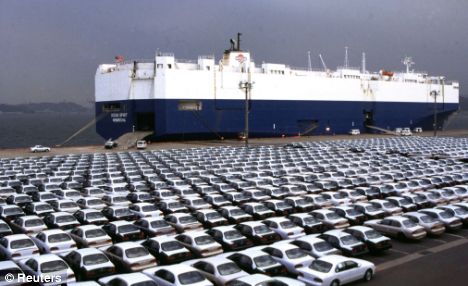Established over 50 years ago, Thailand’s automotive sector has developed into the biggest automotive hub in Southeast Asia and one of the largest in the world. As of 2016, Thailand stands as the 13thlargest automotive manufacturer in the world. The country offers a dual advantage in terms of a large domestic market as well as an established automotive cluster of component suppliers.

The industry accounts for nearly 12 percent of Thailand’s GDP and employs more than 500,000 people including the Original Equipment Manufacturer (OEMs) and Tier 1, 2, and 3 suppliers. Japanese OEMs hold 85 percent market share while the US OEMs account for the remaining 15 percent.
Recent Automotive Regulations
In the year 2016, the government introduced new excise taxes based on carbon dioxide emissions, E85 gasohol compatibility, and fuel efficiency instead of engine size. The most affected segments were the SUVs and pick-up trucks. The industry witnessed an increase in sales in the second half of 2015 as consumers were facing new excises taxes from 2016 onwards.

The government is also supporting eco-car production by providing incentives to manufacturers such as income tax exemption for a fixed period, excise tax incentives, and other tax incentives. Similar to eco-cars, the government also sees a scope for electric vehicles (EV). To promote EV production, the Thailand’s Board of Investment in 2016 decided to waive import tariffs on battery-electric vehicles and provide incentives for battery electric vehicle (BEV) production.
Automotive Cluster
The automotive cluster in Thailand includes 700 Tier 1 companies, and 1,700 Tier 2, and 3 companies employing almost 80 percent of the total automotive workforce. Thai-made parts and components recognized for their high quality by the global OEMs account for almost 85 percent of the total assembled parts in the country. Almost 75 percent of the country’s automotive exports are automotive parts, followed by engines and spare parts. More than 50 of the top 100 global OEM part suppliers have a manufacturing base in the country.
Future Outlook
The year 2016 witnessed a decline in production and exports, while domestic sales grew in comparison to previous year. Domestic sale in 2017 is expected to rise by 6.7 percent. However, exports are not expected to grow due to reduced oil prices and global economic conditions. Record household debt, lower purchasing power, and tightening of loan approval process will tend to affect the domestic recovery in 2017.
The government’s first-car-buyer scheme implemented in 2011 provided tax break for first-time buyers, which led to a surge in 2012 sales and a subsequent drop in 2013. The scheme did not allow the transfer of ownership of such vehicles for a period of five years. Buyers who took advantage of the scheme are now eligible to transfer ownership. Most current car owners are also considering purchasing newer and efficient models driven by the carbon dioxide based excise duty implemented in 2016. OEMs estimate 300,000 buyers from the government’s first-time car buyer program to buy new cars every year. Anticipating a rise in demand, most of the Japanese car companies are also launching newer and fuel-efficient models in 2017 to attract new buyers.
The recent carbon-dioxide based excise duty reflects the government’s initiative to move to more eco-friendly cars in the near future. Eco-cars emitting less greenhouse gasses than conventional gasoline based cars accounted for 39.8 percent of the market in 2016, up from 35.7 percent in 2015. The government will need to provide incentives to consumers to switch to EVs and develop the supporting infrastructure such as charging stations in a bid to promote EVs.
In the near future, Thailand will continue to be a manufacturing center in Southeast Asia, but has to move towards R&D to have a sustainable growth. Focusing on technologies such as EVs, eco-car, and hybrids, will allow Thailand to cater to its export markets, which are slowly moving towards phasing out internal combustion engines in the next 15 to 20 years.
_____
Asia Briefing Ltd. is a subsidiary of Dezan Shira & Associates. Dezan Shira is a specialist foreign direct investment practice, providing corporate establishment, business advisory, tax advisory and compliance, accounting, payroll, due diligence and financial review services to multinationals investing in China, Hong Kong, India, Vietnam, Singapore and the rest of ASEAN. For further information, please email [email protected] or visit www.dezshira.com.



















